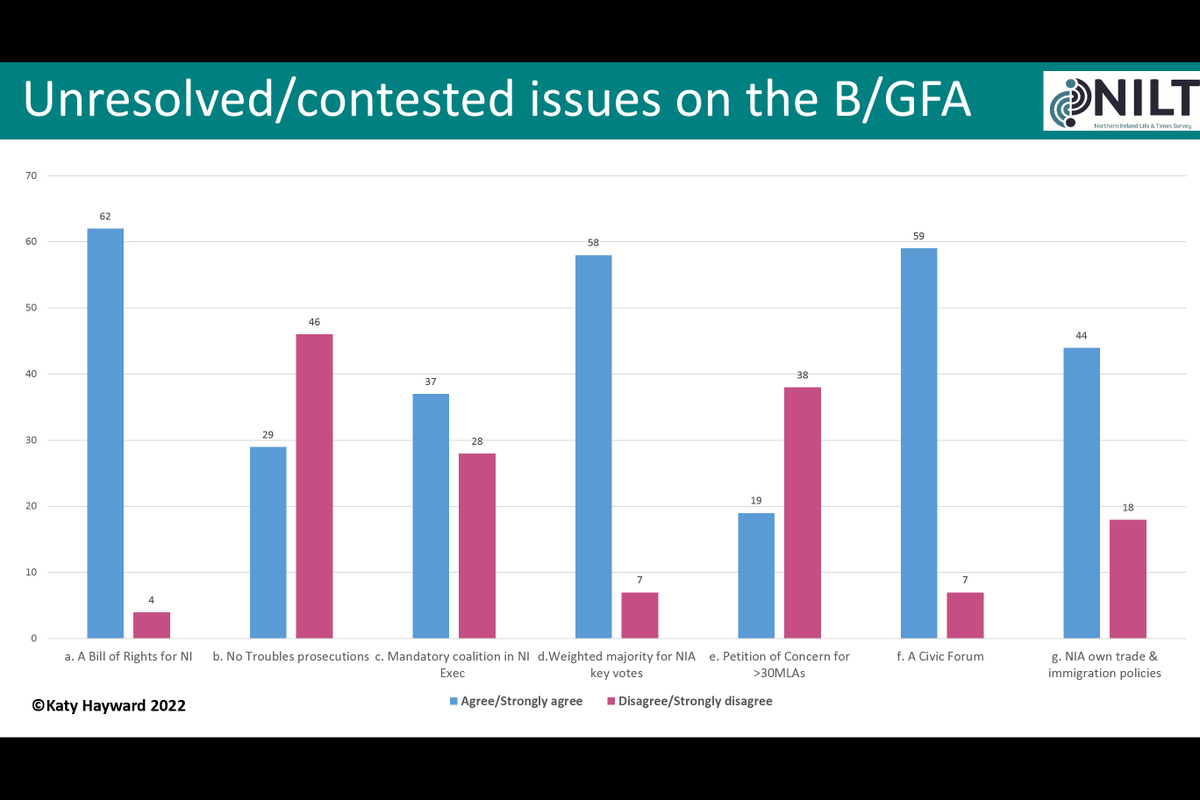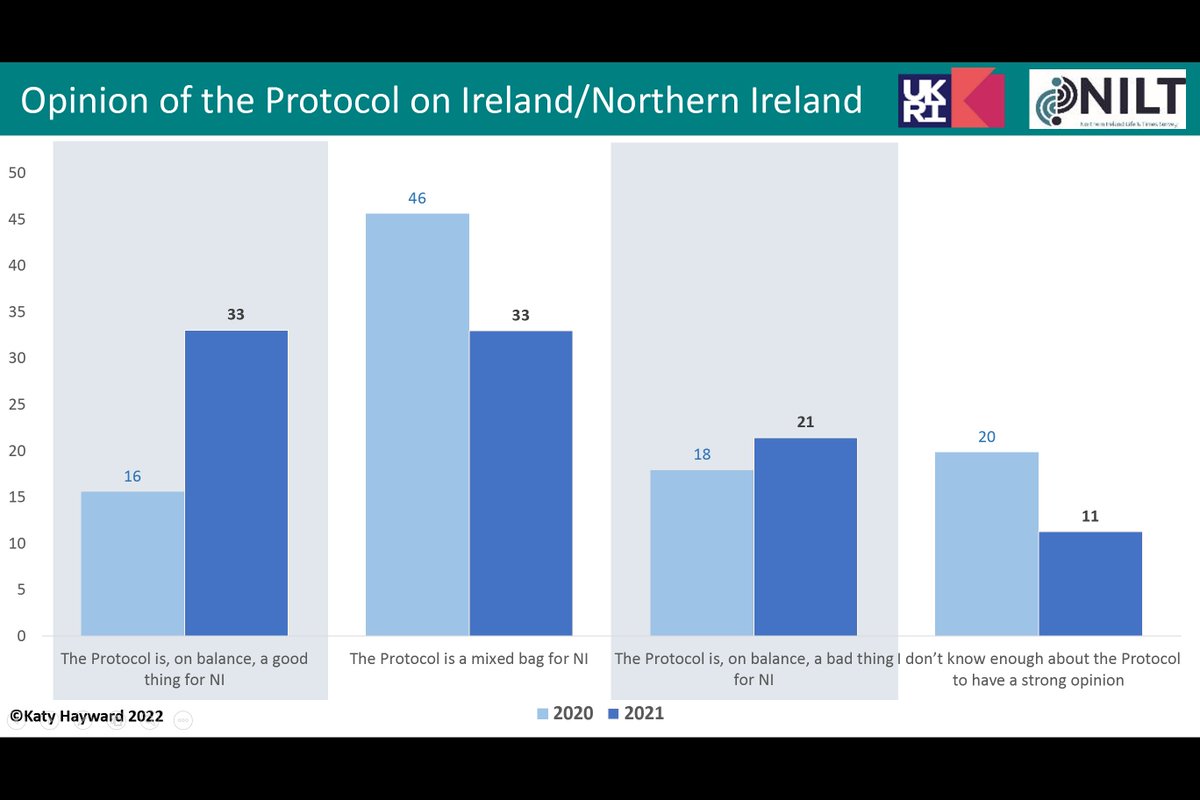The #Protocol on IRL/NI was agreed 2 years ago, with a key objective of avoiding a hard @BorderIrish
But what has #Brexit been like for people living along the #border?
We @QUBSSESW @europe_icban @UKandEU investigated…
And our report is out today!
tinyurl.com/AfterBrexit
1/10
But what has #Brexit been like for people living along the #border?
We @QUBSSESW @europe_icban @UKandEU investigated…
And our report is out today!
tinyurl.com/AfterBrexit
1/10

This is our 4th QUB/ICBAN report since the 2016 referendum.
The study involved an online #survey of those living/working in the Central Border Region.
Our survey received c400 responses, equally spread either side of the border. There were also interviews & focus groups.
2/10
The study involved an online #survey of those living/working in the Central Border Region.
Our survey received c400 responses, equally spread either side of the border. There were also interviews & focus groups.
2/10

We are VERY grateful to each of the respondents to this survey.
It took a time to complete because we insisted on getting comments/views/examples…
And hence the report is another fairly hefty one, as the #Contents show.
The focus is on giving space/voice to respondents.
3/10

It took a time to complete because we insisted on getting comments/views/examples…
And hence the report is another fairly hefty one, as the #Contents show.
The focus is on giving space/voice to respondents.
3/10


Headline findings from the responses to the #survey – bearing in mind this is a large but not a representative sample – are as follows:
First, #Brexit is still seen as major topic of importance by 86% of our respondents -
It's a live & lived issue north & south.
4/10
First, #Brexit is still seen as major topic of importance by 86% of our respondents -
It's a live & lived issue north & south.
4/10

And the impact of #Brexit has worse or much worse than expected for half our respondents, with only 14% saying it was better than they had feared.
This is notable cos we know from our previous QUB-ICBAN reports they expected it to be bad. 😬
(e.g. tinyurl.com/TheBorderIntoB…)
5/10
This is notable cos we know from our previous QUB-ICBAN reports they expected it to be bad. 😬
(e.g. tinyurl.com/TheBorderIntoB…)
5/10

And what has that impact been? This is where the comments come into their own.
Obvs, the experience of the #Protocol is a factor here too.
While respondents point to #economic effects, it's the consequences for #social & political relations they're most concerned about.
6/10
Obvs, the experience of the #Protocol is a factor here too.
While respondents point to #economic effects, it's the consequences for #social & political relations they're most concerned about.
6/10

The greatest concerns expressed by respondents (from all backgrounds & both sides of the border) are for:
* political #stability in NI,
* North/South #cooperation, &
* #community relations in the border region.
This is reflected in what they feel most pessimistic about...
7/10
* political #stability in NI,
* North/South #cooperation, &
* #community relations in the border region.
This is reflected in what they feel most pessimistic about...
7/10

Despite the #Protocol's purpose, over half our respondents believe that there might yet be a #hard Irish land #border.
A repeated theme is that of #uncertainty & instability – a sense that the poor UK-EU rel'ship & British-Irish tensions are having effect on the ground.
8/10
A repeated theme is that of #uncertainty & instability – a sense that the poor UK-EU rel'ship & British-Irish tensions are having effect on the ground.
8/10

To learn more detail on positive & negative views of Brexit/the Protocol, specific challenges for cross-border cooperation, the views of Leave-voters in the border region, the experience of EU migrant workers, the impact of Covid at the border...
👇👇
ukandeu.ac.uk/the-border-aft…
9/10
👇👇
ukandeu.ac.uk/the-border-aft…
9/10
Meantime, this is evidence, if it were needed, for @DavidGHFrost & @MarosSefcovic that the talks they're having on the #Protocol are being watched nervously by those who far from London & Brussels, Dublin & Belfast, but who are still most directly affected by the outcome.
10/10
10/10
• • •
Missing some Tweet in this thread? You can try to
force a refresh















